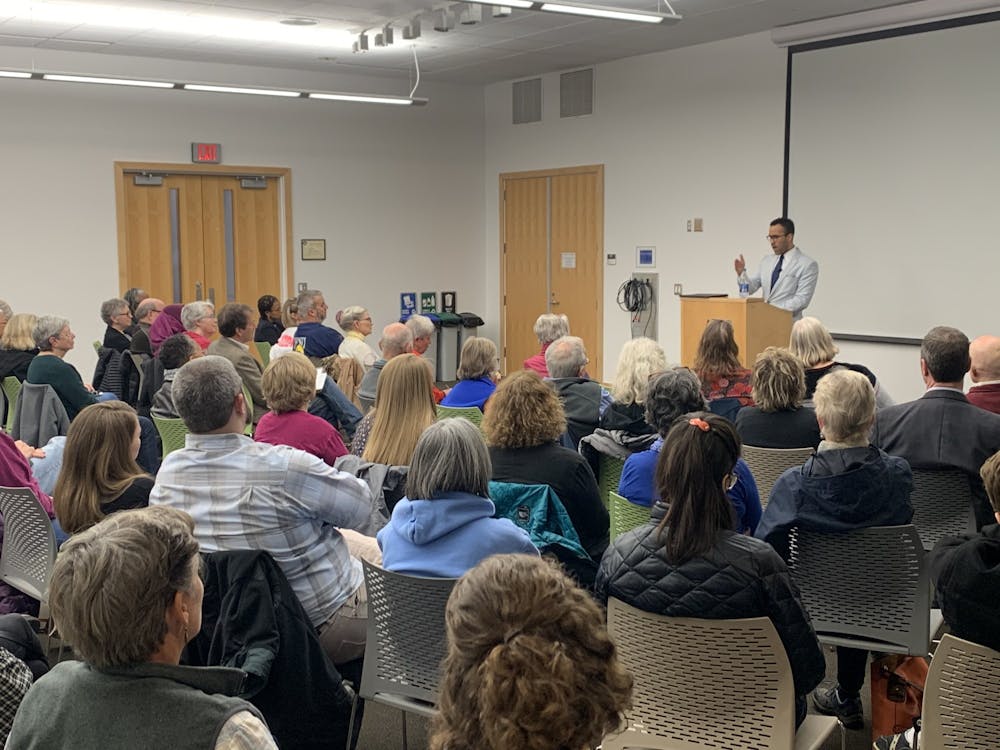Earlier this week, members of the community gathered at the Chapel Hill Public Library for “Conversations on Equity,” a speaker series sponsored by local groups that delves into issues of equity and race relations in the community.
The subject of the lecture on Tuesday night quickly turned to the complicated history of race relations at UNC, and how, according to those present at the meeting, the University has failed in confronting its troubled past.
William Sturkey, an assistant history professor at UNC, was the featured speaker at the meeting. He specializes in the history of race in the American South and teaches courses about southern history and the Civil Rights Movement.
He may be more familiar to audiences at the national level for a recent op-ed column he wrote in the New York Times published in December 2019. The article berated UNC’s legal settlement with the North Carolina Sons of Confederate Veterans, which gave the neo-Confederate group possession of the controversial Silent Sam monument and granted $2.5 million dollars in a trust to be used for its preservation and display.
At the meeting, Sturkey criticized how UNC has neglected to acknowledge the dark history of enslavement that led to the development of the University, especially in the antebellum era.
He mentioned the unmarked graves of slaves at the Barbee Cemetary, which is owned by the University and is located a short distance away from its business school’s Rizzo Center, as one example of this trend. He expressed anger that the University failed to recognize that these bodies were buried there without making this information clear to the public or making any effort to restore these historical sites.
“There are actual Black bodies in the ground, and no one seems to give a damn,” Sturkey said. “What an incredible injustice.”
He also cited the University’s moratorium on renaming campus buildings as a way in which the University is refusing to take accountability for its past misdeeds. This decision was made by the Board of Governors in 2015 after the renaming of Saunders Hall, which was originally named for William Saunders, a chief organizer of the Ku Klux Klan in North Carolina and Chapel Hill.



